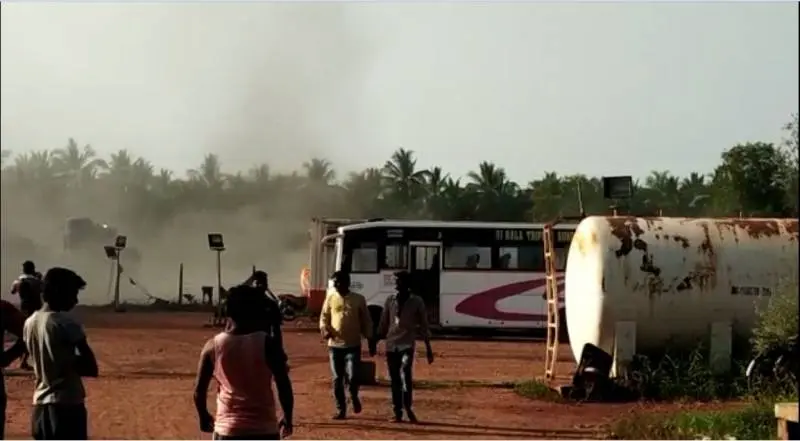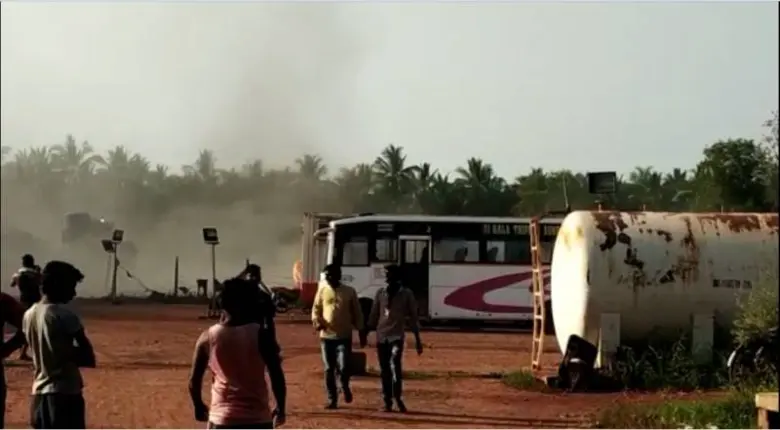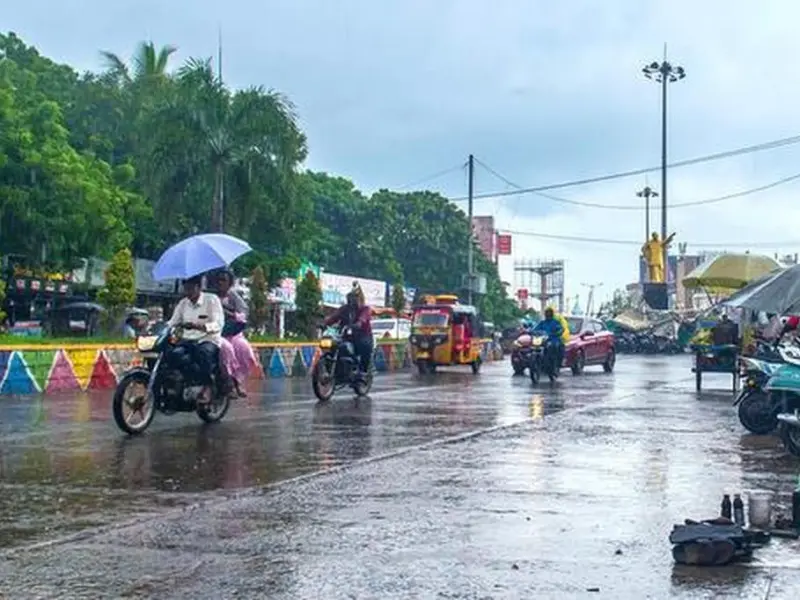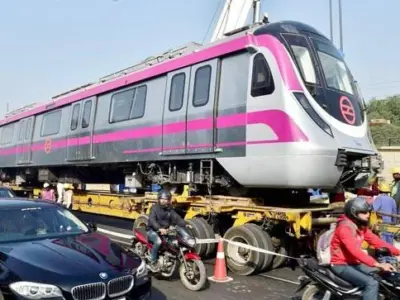The gas leak originating from well number RDS-147 (Rig SKP-135) at the Rudrasagar oil field, operated by Oil and Natural Gas Corporation (ONGC), has entered its third day without being brought under control. The leak began on the morning of June 12 around 11:45 AM with a loud burst and has persisted unabated since.
Despite sustained efforts to seal the well, relief teams have yet to succeed in stopping the leakage. ONGC’s disaster management team, along with the State Disaster Response Force (SDRF), National Disaster Response Force (NDRF), and local emergency services, continue to work round the clock to manage the situation. Authorities have clarified that there have been no reports of fire or casualties so far.

Relief Operations and Evacuations Underway as Over 1,200 Residents Displaced Amid Growing Fear
Approximately 137 families within a one-kilometer radius evacuated to relief camps at Bhatiapara and Bongao
The high-pressure gas leak accompanied by a loud roaring sound and strong odour in the air has caused widespread panic among villagers in the vicinity. About 137 families, totaling over 1,200 individuals, have been evacuated from their homes as a precaution and sheltered in relief camps set up at Bhatiapara and Bongao. These camps provide cooked food, clean drinking water, primary medical aid, and security.
However, displaced residents have expressed concerns over the lack of adequate basic facilities at the relief centers.
Authorities Implement ‘Well Killing’ Technique to Curb Leak as Tensions Rise Over Delayed Response
ONGC initiates chemical intervention to control gas flow; next phase of operation expected soon
District Commissioner Ayush Garg stated that joint teams comprising ONGC, SDRF, NDRF, and local emergency responders are engaged in efforts to control the leak and restore normalcy. He appealed to residents to stay clear of the affected zone and comply with administrative instructions for their safety.
Officials from ONGC reported that the ‘well killing’ process has commenced, involving the injection of specialized chemicals to suppress the gas flow. The next phase of this operation is anticipated to begin early morning, though no definitive timeline has been provided yet.





